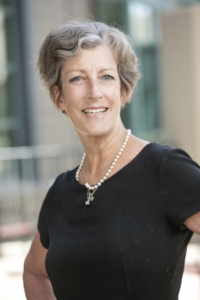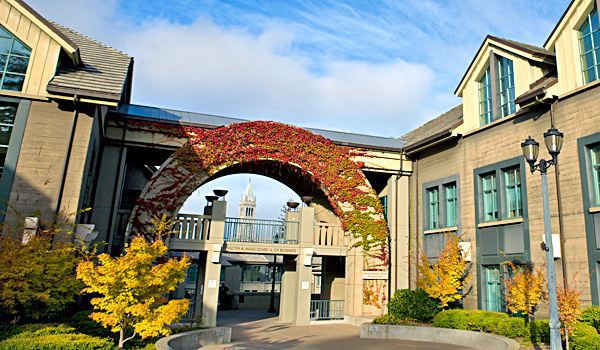More than 60 administrators and faculty from over 20 executive MBA programs converged at the University of California-Berkeley Haas School of Business early this week with one plan: talk experiential learning. Participants of the Executive MBA (EMBA) Council Western Regional Conference spent three days on the Northern California campus to share what works and what doesn’t for increasing experiential and immersive learning within EMBA programs. The conclusion? EMBA students want more experiential learning, and programs are ready to oblige.
Jamie Breen, assistant dean of the MBA for Executives Program at Berkeley-Haas, set the stage in her opening remarks. Citing Graduate Managment Admissions Council data in a previously published Poets&Quants article, Breen acknowledged EMBA students would like, on average, 24% of their programs to be experiential. “And on average across the EMBA programs GMAC surveyed, it actually was about 10%,” she said in front of a packed classroom.
Closing the gap is no small task. “EMBA programs are different,” she continued. “It’s not that easy.” Indeed. EMBA programs are accelerated, they are targeted and focused, and it’s simply difficult to build experiential into a program traditionally built on cases. However, there are a few programs that have figured out ways to include increased immersive and experiential learning into an EMBA program. And those were the ones sharing their successes.

Jamie Breen, associate dean of the MBA for Executives Program at Berkeley-Haas. Photo courtesy of Berkeley’s Haas School of Business
TOP PROGRAMS SHARING PROGRAMATIC OFFERINGS THAT WORK
Haas is certainly one of the leaders. When the Berkeley/Columbia EMBA split three years ago, Haas started anew with 25% of its curriculum dedicated to experiential learning via its immersion weeks. At the end of each term (there are five), the entire cohort joins a few professors in a week-long immersion around different topics. First, students spend a week in nearby Napa, taking a deep-dive into leadership. Up next is a week spent in also-nearby Silicon Valley, visiting with more than 30 startups. After a Washington, D.C. week, students spend an innovation and global week, which changes locations depending on the year.
At the University of Washington Foster School of Business, EMBA Director Gordon Neumiller and Assistant Director Jennifer Bauermeister spoke on the school’s Strategic Consulting Program. Specific to the Executive MBA program, students may participate in a 12- to 15-week field study. Students are placed in teams and research a business problem ranging in topic areas from accounting and finance to operations and human resources. Toward the end of the entirely experiential elective course, teams give their recommendations to their respective businesses.
Similarly, Dartmouth’s Tuck School of Business features an OnSite Global Consultancy Program in which students work on real projects for companies around the world. Kerry Laufer, director of the program, and Emily Nichols, associate director, spoke of the program, which has featured more than 200 projects for 139 clients in more than 50 countries.
BIG EXPERIENTIAL LEARNING CHANGES ON THE HORIZON?
Of course, as keynote speaker and Haas superstar professor, Maura O’Neill said in her opening address that an MBA is more than just a degree. It’s a significant investment of time and resources. Consequently, she believes, administrators and faculty should take it upon themselves to make it a life-changing experience. A way to ensure that is — to take it out of the classroom.
“I believe that at the end of the day, in order to create this life-changing experience, it has to be through every part of our program,” O’Neill said. “So I think we need to actively and loudly set the bar here.” If the influential individuals in the room heed O’Neill’s advice, expect an uptick in experiential learning in EMBA programs in the near future.
DON’T MISS: HAAS EMBAs FOLLOW SILICON VALLEY’S EXPANSION or HAAS IN SILICON VALLEY: STUDENT PROFILES








Questions about this article? Email us or leave a comment below.